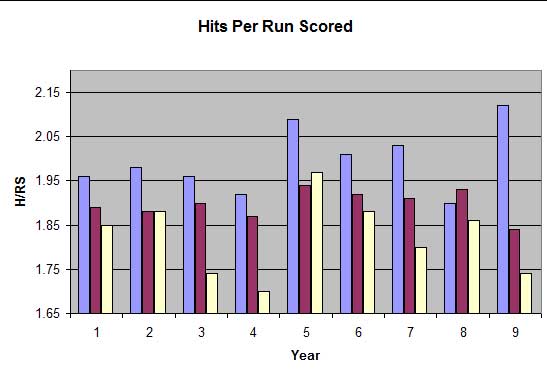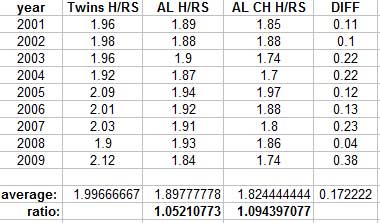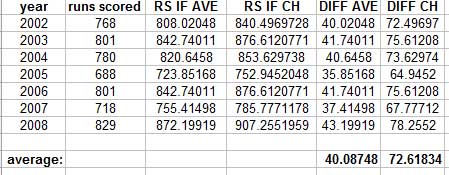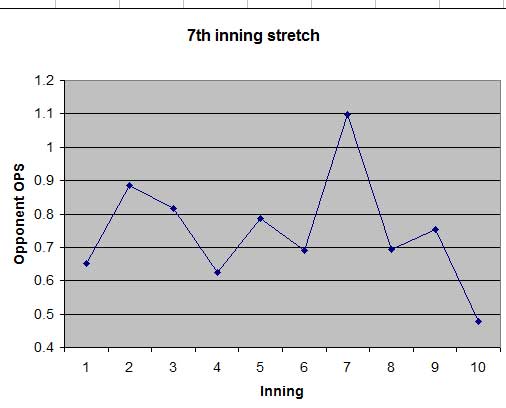How has that pride and joy helped the Twins during the Gardenhire years? Let's examine the facts. One way to look at it is that if the method is successful, one would assume that a team would need fewer hits to score runs. That would be efficient way of playing. In this way, you make the best of each hit and score more runs than the competition with fewer hits. This is a recipe for winning. The following graph spans every season from TK's last season, 2001 (1) to 2009 (9). I am plotting total hits over runs (i.e. how many hits it takes to score a run) for the Twins (blue), the AL average (burgundy) and the AL champion (yellow; for 2009 I am using the team with the best AL record, Toronto):

As you can clearly see, the Twins need more hits to score a run than the average AL team and the team that wins the pennant usually scored more runs with fewer hits than the average. And (other than 2008), the situation has gotten worse with Joe Vavra as the hitting coach.
Conclusion 1: Small-ball, i.e. doing the little things right, i.e the Twins' way is hurting the Twins.
How much?
Let's quantify:

This is the table that is used to create the graph above. The columns are years, Twins Hits/Run, AL Average Hits/Run and AL Champion Hits/Run for every season (the last column is the difference of the Twins' squad from that of the AL Champion every season, but it is unimportant in the calculation)
The averages of all 10 seasons are underneath each column. The ratios of the Twins average to those of the other averages are noted under each column. Still, all these are ratios, fractions and small numbers; how do they translate in concrete terms.
There we go:

here is a table with the runs the Twins scored each season since 2002 and the runs they would have scored that season, if they were scoring runs at the rate of an average AL team based on the number of their hits and if they were scoring runs at the rate of the AL champion based on the number of their hits. The two last columns are the difference for how many runs the Twins scored and how many they would have scored, if they were translating their hits into runs as effective as the average AL team or the AL Champion. I averaged the values of the last two columns and came to this conclusion:
Doing things the Twins' way, cost this team between 40 and 73 runs every season.
And if you calculate about 5 runs per win, this is costing between 8 and 15 wins a season.
That is concrete. And it is so concrete, that in other words I could have called this little piece: "Honey I've shrunk the offense"





